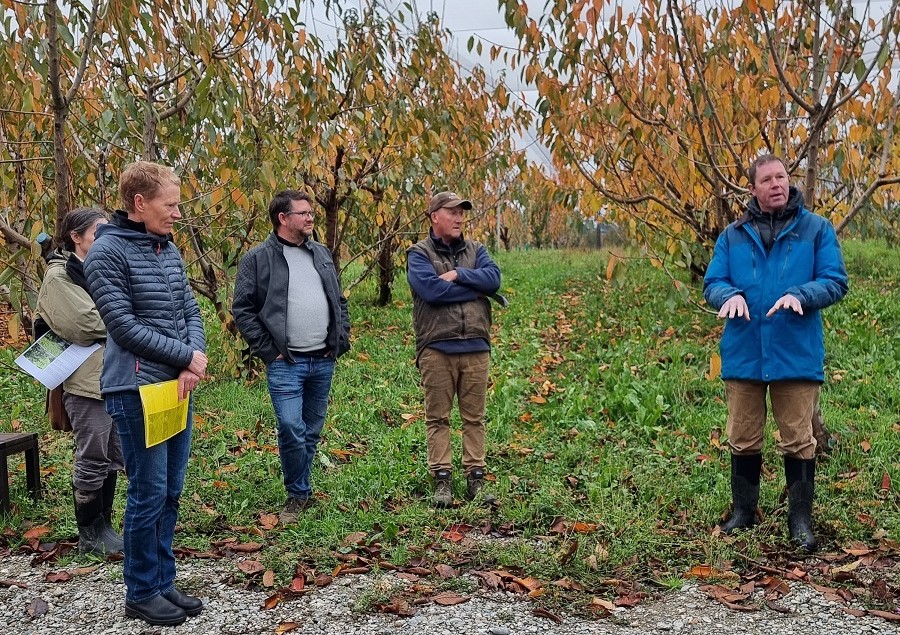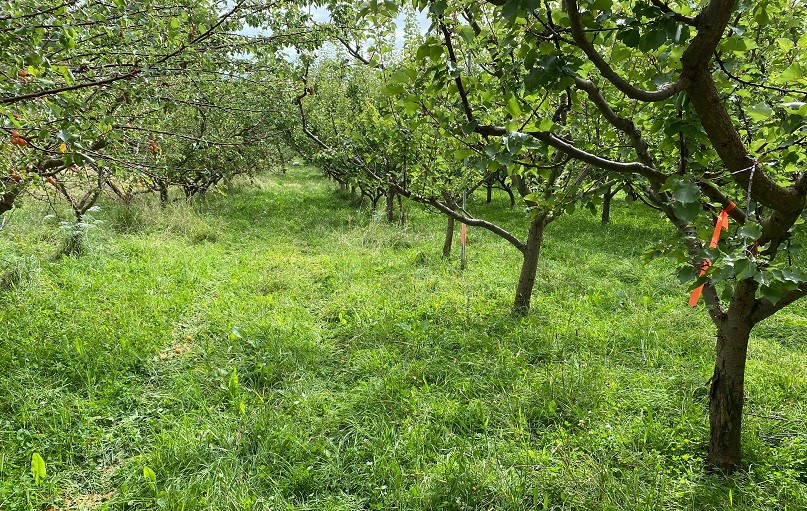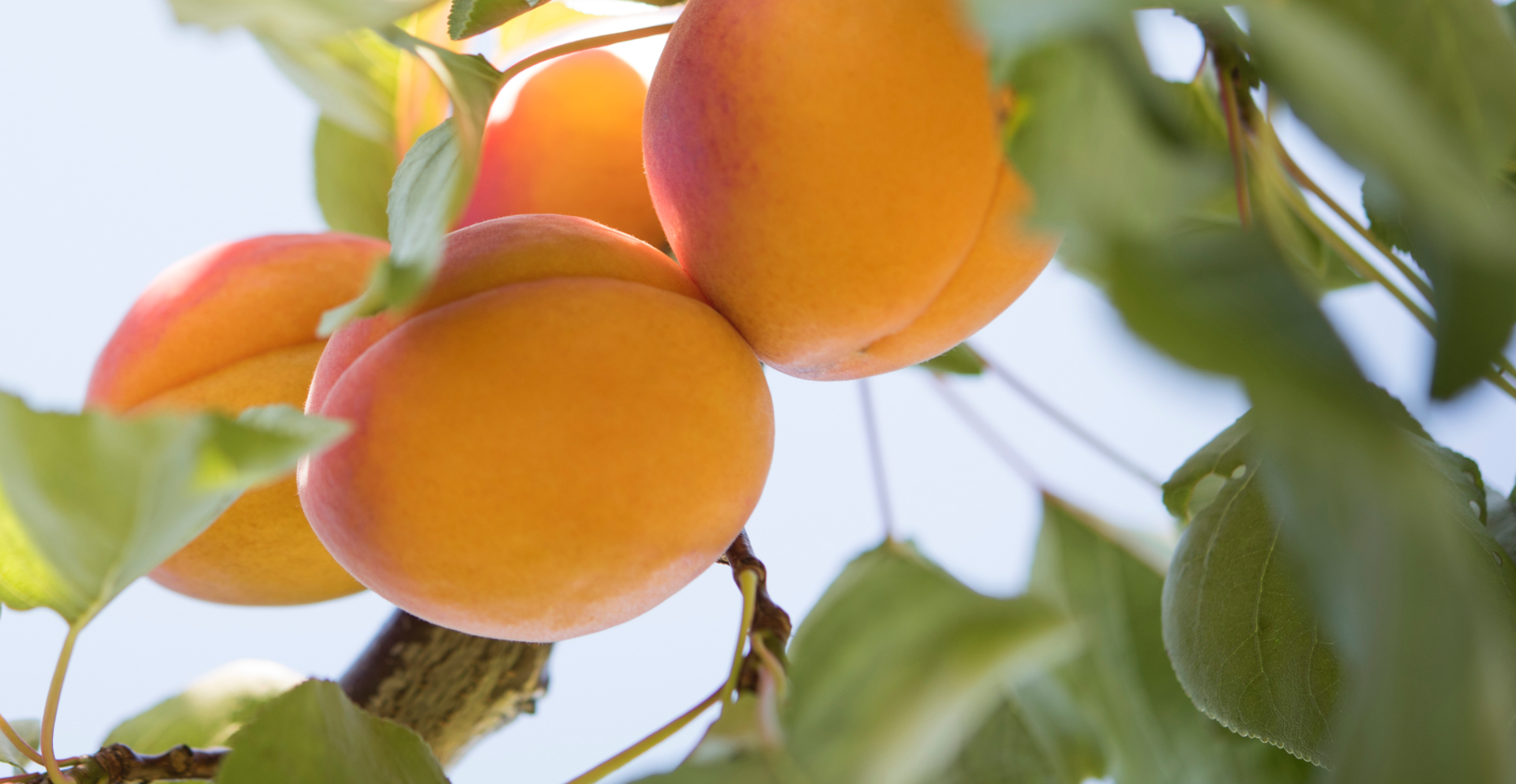A Lighter Touch product group partner Summerfruit New Zealand sees the programme as a “journey of exploration,” showcasing different approaches to sustainably growing food.
Sally Anderson is Summerfruit New Zealand’s Research and Development Manager and represents the product group on the A Lighter Touch (ALT) Industry Stakeholder Advisory Group.
“There’s a lot of new information and regulation coming to growers in terms of new ways of growing. There’s A Lighter Touch, but also regenerative agriculture and sustainability metrics coming through customer preferences and regulation. It all contributes to motivating people to think about different ways of doing things. A Lighter Touch is way to showcase how some of these different approaches can be explored,” Sally says.
Summerfruit New Zealand (SNZ) chose to partner in A Lighter Touch because of the opportunity it provided to trial new approaches to crop protection, and also because it saw value in the collaborative nature of the programme.
“A new crop protection product may not be tested on cherries, apricots or peaches, but the pest or disease may also be a pest of concern for Summerfruit.”

Summerfruit NZ research and development manager Sally Anderson (left) listens as Dr Charles Merfield (right) speaks about the summerfruit understory project at a field day. Orchardist Craig Affleck (centre) is one of the growers taking part in the project.
Being a larger product group, Summerfruit NZ has its own research and development programme. Despite that work being funded by SNZ, it feeds the knowledge and results into the A Lighter Touch programme for the benefit of all ALT partners.
“Summerfruit is doing a lot of testing of biologicals outside of ALT and that has relevance to the other crops. For example, we’re testing biological products for control of botrytis. Botrytis is a pretty universal problem, so we contribute to growing that broader sector knowledge by feeding our results into ALT.”
Sally sees it as a reciprocal model, with other ALT partners with research programmes taking the same approach, such as the Foundation for Arable Research with the work they fund into resistance management.
“It was a founding principle for this programme, that we were going to travel further, faster in terms of finding crop protection solutions by working together and sharing what we learn.”
The Summerfruit New Zealand-A Lighter Touch project aiming to establish understory planting in summerfruit orchards to enhance biodiversity is a case in point.
“The work we are doing in the understory with Summerfruit was built on the previous ALT understory project in citrus orchards. We’re taking the findings from that project and building on this project.”
While the work in Citrus focused on enhancing biodiversity and natural predator populations, Summerfruit New Zealand is also interested in associated co-benefits, including weed management, improved disease control through covering bare ground, and improvements to soil health.
“Our growers are particularly interested in the weed control aspects, the economic and environmental benefits of not having to mow and the ability of the understory to reduce some of that weed burden within the orchard.”

The understory in an apricot orchard at Roxburgh, another demonstration site for the summerfruit understory project.
Increasing abundance of beneficial insects, particularly pollinators, is also important to Summerfruit growers.
“Some growers were initially concerned about the understory providing competing floral resources for pollinators. However, what we’ve learned is providing other pollen sources is more likely to keep those beneficial insects in the orchard, as we’re providing the diversity of pollen resource they require. Essentially the understory is ensuring they can get their full dietary requirements in the orchard, rather than having to look elsewhere.”
The project has only just completed its first growing season, but as it continues, Sally sees it contributing valuable knowledge for all perennial crop growers around the benefits of having a diverse understory.
And like a lot of A Lighter Touch projects, it’s a long-term investment.
“The understory work takes time. We need to give it at least three growing seasons because each growing season will be different. This will give growers confidence to try it themselves”
